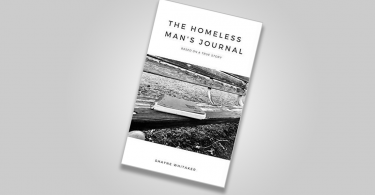To members of the public, Nabokov is (if they’ve heard of him at all) the author of Lolita. To critics and book lovers, his was the pen behind the dazzling and jewelled American trilogy – Lolita, Pale Fire and Pnin, with the memoir Speak, Memory perhaps mentioned with an admiring nod as an afterthought. The bulky and cumbersome Ada is Nabokov’s Finnegan’s Wake, more talked about than read.
From Russian to English
But these seemingly effortless masterpieces conceal decades of zealous grit and hard work. It’s easy to forget that, before moving to America, Nabokov had a reputation in Continental Europe as a precociously talented writer of charming novels written in Russian. His Conradian shift from the language of his motherland to a mastery of English is enough to make native speakers whimper with jealousy. But his Russian novels are still worth going back to, if only because he later translated all of them into English himself.
Laughter in the Dark
Of these, Laughter in the Dark is one of the most accomplished. Is there a better way of declaring that plot is superfluous, and that language is all, than by revealing the ending of your novel in its opening sentence?
“Once upon a time there lived in Berlin, Germany, a man called Albinus. He was rich, respectable, happy; one day he abandoned his wife for the sake of a youthful mistress; he loved; was not loved; and his life ended in disaster.”
Obligatory plot summary: art-critic Albinus is married to Elisabeth. Elisabeth’s protective and seemingly omnipresent brother Paul is suspicious of her husband’s recent behaviour, and rightly so; Albinus has fallen in love with the hopeful young starlet, Margot. Margot’s affections, however, are soon redirected at a former fling, the painter Axel Rex. This ménage a trois is the focus of the bulk of the book, and sets up one of the most unsettling closing few chapters of a novel I have ever read.
“Words without experience are meaningless.” – Vladimir Nabokov
— Kornelia Santoro (@KorneliaSan) November 30, 2015
Master of Phrases
The real beauty of novels lies not, as the cliché goes, between the lines, but in the lines themselves. Gore Vidal used to claim that he was in the business of “making sentences”; of putting one word after another in an arrangement pleasing to both the eye and the ear. Nabokov does this better than anyone. Case in point: Albinus is looking out of the window:
“On the sunlit wall of the opposite house the fast shadow of smoke ran sideways from the shadow of a chimney. The asphalt was drying patchily after a recent shower, the damp still showing in the form of grotesque black skeletons as if painted across the width of the road.”
Or this line, in which Nabokov shows his talent for concise summaries of personalities:
“Baum, the author, a stout, red-faced, fussy individual with strong Communistic leanings and a comfortable income”.
Just look at how much is packed into such a short sentence.
Nabokov does meta
Nabokov’s entire oeuvre is full of examples of him trying to impinge on his creations, to poke his head between the curtains of fiction, and even this early novel contains a very Nabokovesque character called Udo Conrad (not, we are reminded, “the famous Pole”), who is at the very least a fuzzy image of his inventor.
The parallels between this earlier work and his later masterpieces are occasionally quite eerie. There is a perhaps too blunt metaphor to be found in the scene in which Paul tries to distract his sister from Albinus’s infidelities with a trip to the park, where they watch a monkey teasingly escape from its owner. This has to at least put one in mind of Nabokov’s (perhaps slightly tall) tale about his inspiration for Lolita; he remembered reading an article about an encaged ape who learnt to draw the bars of its own cage. Puzzles, puns and (simian) metaphors reverberate throughout the Nabokov canon.
For all of his levity and playfulness, there is a darker side to Nabokov that has only recently been properly explored. The haunting and tormenting ending of this particular novel is written as a farce, a grotesque parody not dissimilar to the final confrontation between Humbert and Quilty. But even this cannot conceal the sheer brutality. I recommend this book to those who have already imbibed the later masterpieces, as a reminder that Nabokov is just as interested in laughter as he is in the darkness that is its backdrop.
Have you read Laughter in the Dark? Let us know in the comments below!








